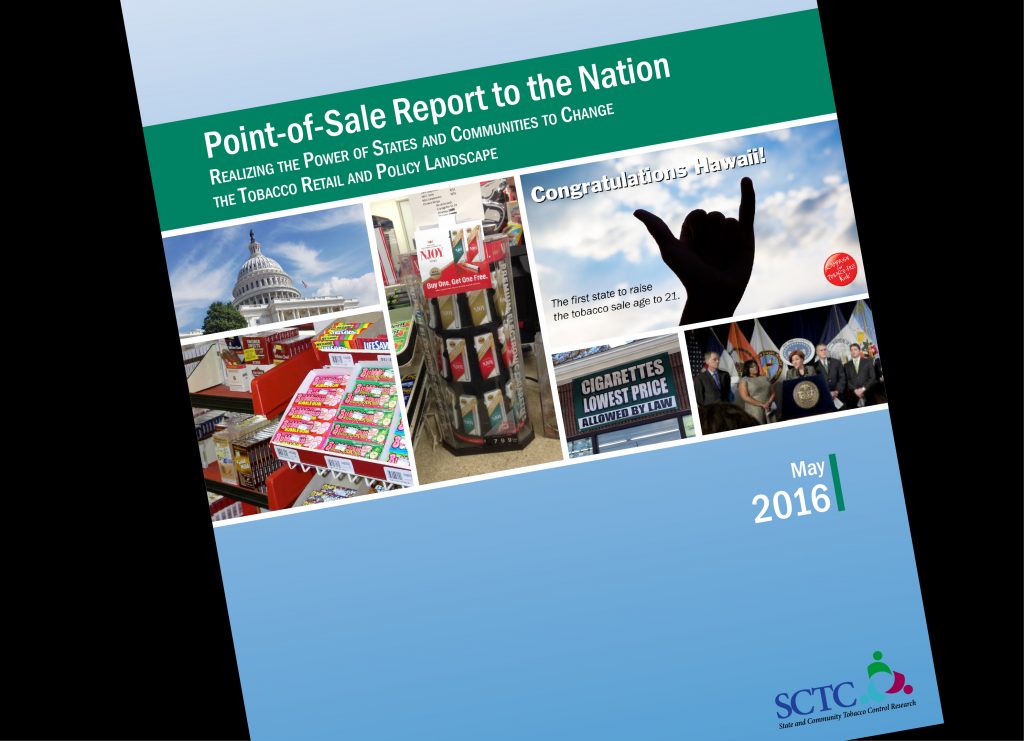Point-of-Sale Report to the Nation highlights growth in retail tobacco policy activity since 2012
The Center for Public Health Systems Science (CPHSS) at Washington University in St. Louis, in collaboration with researchers from the Stanford Prevention Research Center and the University of North Carolina Gillings School of Global Public Health, recently published Point-of-Sale Report to the Nation: Realizing the Power of States and Communities to Change the Tobacco Retail and Policy Landscape, the third in a series. The research comes out of the Advancing Science in the Retail Environment (ASPiRE) project, part of the National Cancer Institute’s State and Community Tobacco Control (SCTC) Initiative. The report presents updates from ASPiRE’s research on retail tobacco policy activity, tobacco retailer density, and product availability and price in states and communities across the U.S.
States and communities around the country are planning and implementing policies to regulate the tobacco retail environment, like increasing the minimum legal sales age for tobacco products, establishing retailer licensing fees and banning self-service product displays. Through interviews with tobacco control program leaders from all 50 states and 80 sample localities in 2015, CPHSS researchers have documented policy innovations, investigated barriers encountered by tobacco control programs, and assessed growth and changes in the overall tobacco retail policy environment.
Highlights from Point-of-Sale Report to the Nation: Realizing the Power of States and Communities to Change the Tobacco Retail and Policy Landscape include:
- Prior to the FDA finalizing its deeming rule for e-cigarettes and other tobacco products in early May 2016, 90% of states had established a minimum legal sales age for e-cigarettes and almost half (45%) had banned self-service e-cigarette displays.
- More and more localities are establishing retailer licensing beyond that required by states: over 30% of our sample jurisdictions did so by 2015.
- Communities in 42 states have conducted or are currently conducting retail tobacco assessments to raise awareness and inform policy, and most of these efforts have incorporated STARS, the Standardized Tobacco Assessment for Retail Settings. The standardized tool released in 2014 allows for and encourages cross-community comparisons.
- A lack of political will and tobacco industry interference remain major barriers to point-of-sale policy activity.
- Despite barriers, retail tobacco policy activity has dramatically increased since 2012, when ASPiRE first collected data.
Also check out the timeline included in the Report, which positions the ASPiRE project, its data collection and other activities in the changing retail tobacco policy context of recent years. Download timeline.
The latest Report to the Nation is one of many reports and tools from the ASPiRE research consortium available as resources for tobacco control programs and partners. For more information, visit the ASPiRE project page or contact the study team at cphss@wustl.edu. Look for project updates on our website or follow us on Twitter @cphsswustl.
